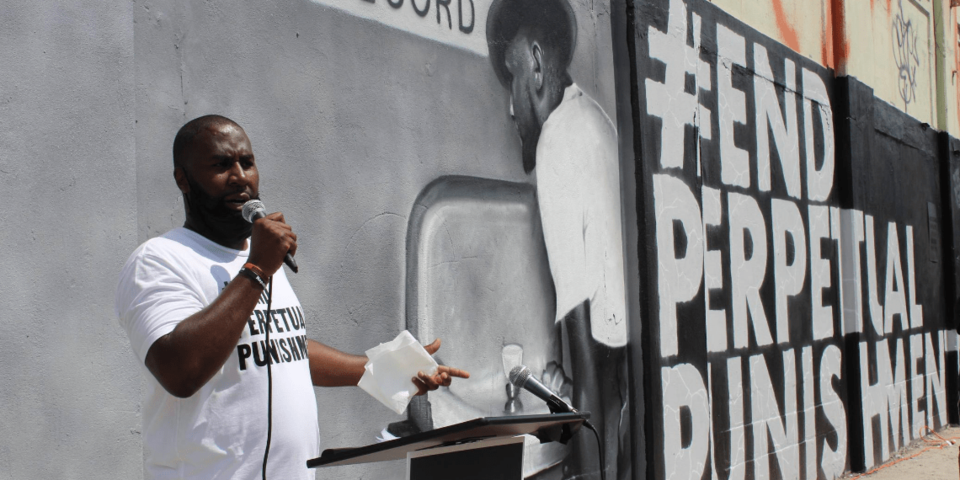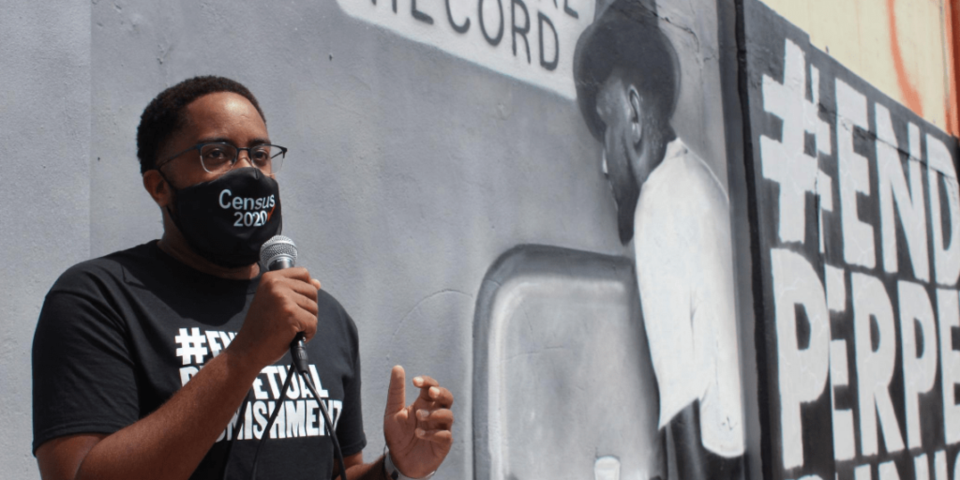It took the organizers behind a new Bed-Stuy mural more than a handful of phone calls before they could get a building-owner to lend them their wall.
"Not everyone was receptive, especially when we showed them the mock-up," organizer Wayne Harris said.
The new mural, unveiled on Atlantic Avenue Saturday, references an image from the United States' racist history--segregated water fountains in North Carolina in 1950.
Luckily, Ahsan Habib of the Madina Industrial Corporation came through with the approval for the wall at the corner of Perry Place.
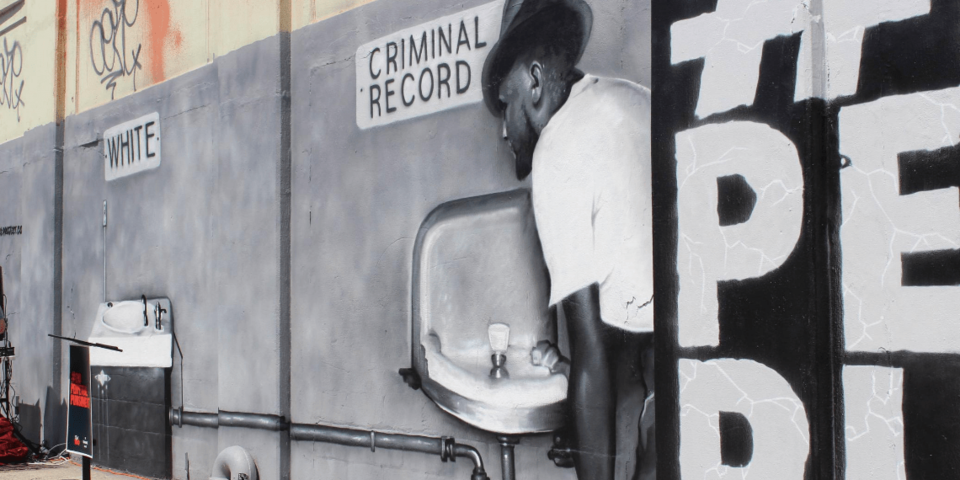
The piece is the first of what is set to be many murals drawing attention to the #EndPerpetualPunishment campaign spearheaded by Michael "Zaki" Smith. It draws attention to the many laws and regulations that stop former prisoners who have served their sentences from reintegrating into society.
"As a native of Bed-Stuy, it was important to me that the first mural be near the neighborhood I grew up in," Smith said. "Essentially every sentence is a life sentence. I hope these murals can raise awareness about a missing part of the national conversation on reforming our racist criminal justice system."
A silent life sentence
Smith knows first-hand the impact of what the National Institute of Justice says is more than 44,000 laws and regulations that limit or restrict former prisoners' access to employment, housing, voting, education and other rights after their release.
Born and raised in Bed-Stuy, Smith spent more than sixteen years of his adolescent and adult years in and out of prison. Once he got his life on track, he started to find his passion--working with young people.
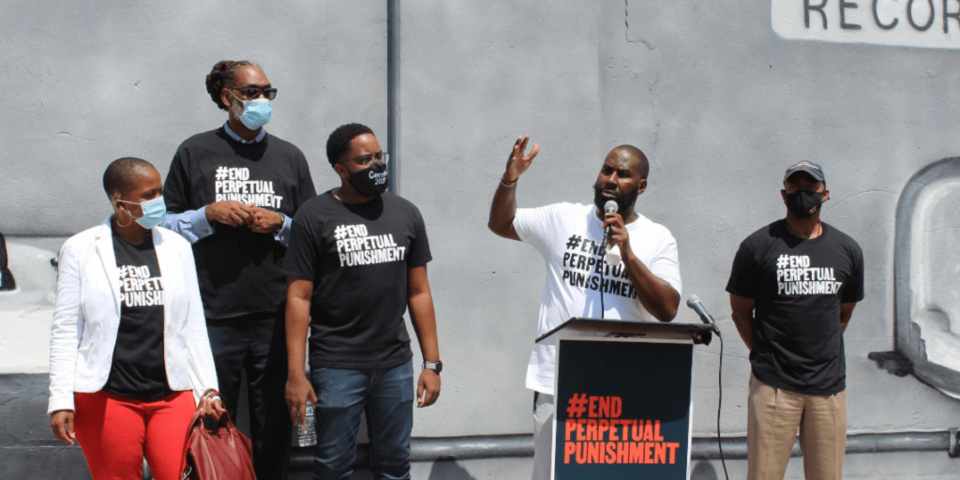
But after more than four years working as a 'dream director' with teens in Newark, he got a letter from the The New Jersey State Board of Education saying he could no longer work in any school in the state of New Jersey, due to his criminal history.
"It affected me more severely than being in prison would," he said. "I was never sentenced to life, but in essence, I was sentenced to life."
Now, Smith wants to see mass changes in state legislation, so former prisoners who have served their time are not handed down a "silent life sentence" by society. As part of the non-profit Next100, Smith is currently working on a bill that would remove some of the "collateral consequences" existing for former inmates.
Smith is also working to advance the New York Clean Slate campaign to implement automatic criminal record expungement in New York state.
Support from politicians
Brooklyn Borough President Eric Adams spoke at the mural's launch, where he said if it wasn't for his criminal record being sealed as a 15-year-old, he would have never have had the chance to contribute to society in the way he has. "My entire life would have been destroyed," he said.
Having a conviction, even if you got it in your teens, increases your chances of returning to prison, of being homeless and of being unemployed, he said.
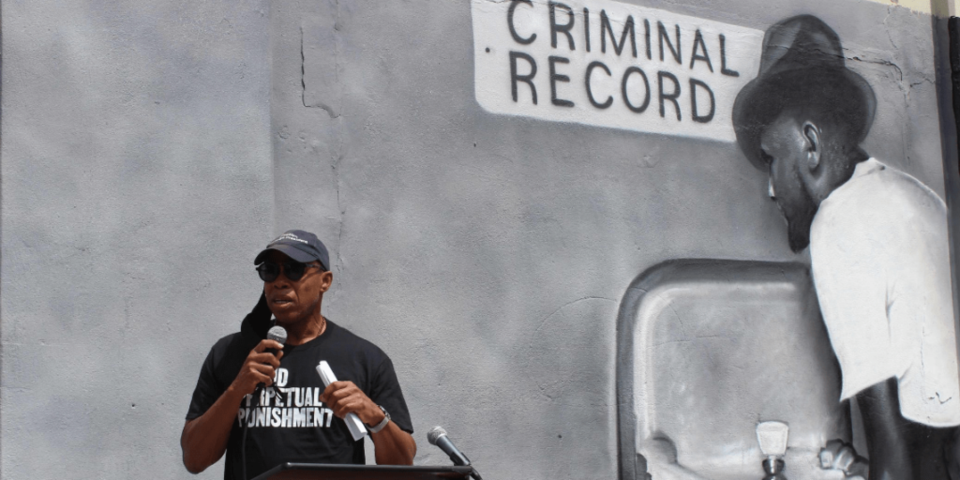 State Senator Zellnor Myrie said he was committed to ending perpetual punishment in the state of New York. "We double jeopordize people for being part of a racist justice system," he said.
State Senator Zellnor Myrie said he was committed to ending perpetual punishment in the state of New York. "We double jeopordize people for being part of a racist justice system," he said.
He said that while minor changes to that system were made in 2019, the state saw a "backlash like you have never seen before." In December 2019, the Fair Chance to Compete for Jobs Act was passed in Congress. The law delays employers from asking about criminal history until the job offer is given.
Assemblymember Tremaine S. Wright said, as a lawyer, she had seen the impact on Black women whose rights were stripped both while they were in prison and once they'd been released. "It's a dismantling of Black families," she said. "We want to get rid of all of the policies that stop you from coming home and building your family."
Councilmember Robert Cornegy told listeners the movement had an ally in City Council. "Art has always been a catalyst for change," he said.
Not equal
The mural, painted by artist Damien Mitchell, covers three long walls of the building on Atlantic Avenue and Perry Place, just past Nostrand Ave.
The black-and-white painting references a well-known photo of segregated water fountains. After the Civil War ended in 1865, black codes and Jim Crow laws were passed at different periods in the South to enforce racial segregation.
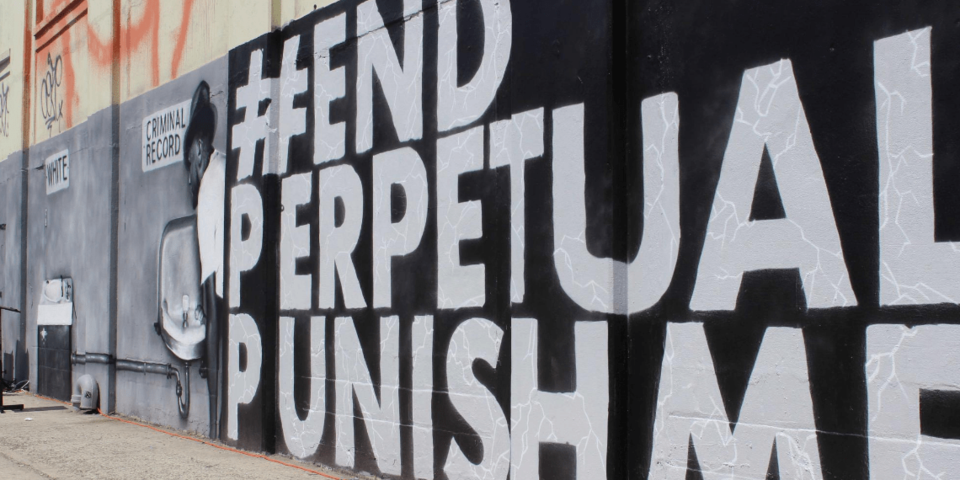
The principle "separate but equal" was established in the Supreme Court in 1896, but as the photo showed, equality was not the reality.
Now, the image highlights the cruel and unequal impact--particularly on the Black community--of mass incarceration and laws that prevent former prisoners from reintegrating into society.
"There is this notion that individuals who have a criminal record are somehow never safe. My question is, when do we become safe? When does it end? But it doesn't, it's for life," Smith said, speaking afterwards.
He said while he is employed now, he doesn't know if he will be able to give back to young people the way he wants to in the future. "Who knows what is going to happen after my fellowship with Next100? I'm back on the job search again, and who knows. I still gotta go in front of people and bare my history, again."

